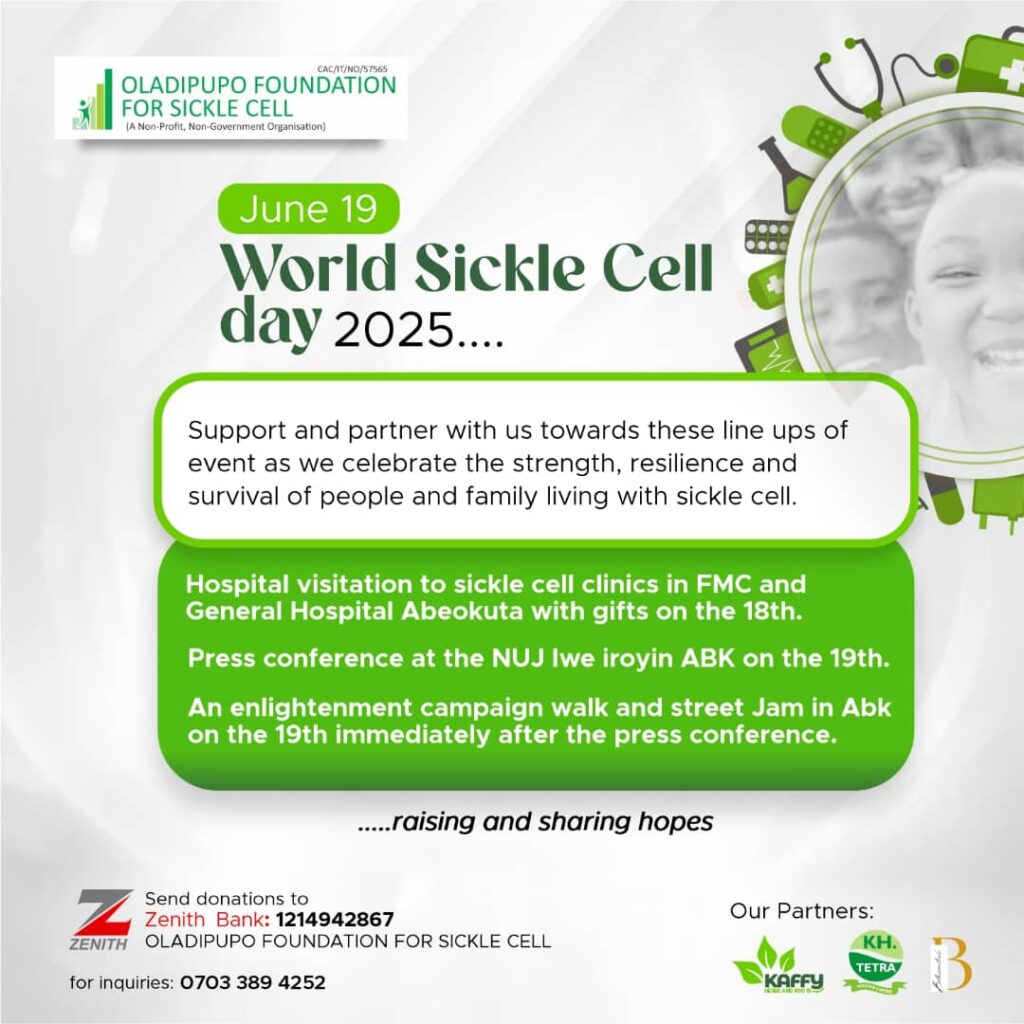Daud Olatunji
The Founder of Oladipupo Foundation for Sickle Cell, Dotun Oladipupo, has raised the alarm over the prohibitive cost of bone marrow transplants in Nigeria, describing it as a major barrier to survival for many sickle cell patients.
Speaking during a press briefing in Abeokuta, Ogun State, to mark the 2025 World Sickle Cell Day, Oladipupo lamented that the procedure, which is regarded as a potential cure for sickle cell disorder, costs as much as ₦40 million, rendering it inaccessible to the average Nigerian family.
The foundation, during a sensitisation rally held across major parts of the Ogun State capital, also used the opportunity to demand urgent government intervention in the management and support for people living with the condition.
“There are no subsidies for sickle cell treatments. Unlike conditions such as HIV where the government steps in, people with sickle cell are left to carry their burden alone,” Oladipupo said.
Citing this year’s global theme, “Global Action, Local Impact: Empowering Communities for Effective Change”, the foundation’s founder stressed the need for inclusive healthcare policies and greater investments in local medical research.
“Sickle cell is predominantly an African problem. Sadly, while the West has invested heavily in finding solutions, we in Africa are left to deal with the devastating impact with little support,” he added.
Oladipupo further called for legislative reforms to protect and empower people living with sickle cell disorder, especially in areas of healthcare access and employment.
He urged both federal and state governments to implement quota-based hiring for qualified individuals living with the condition.
“If you’re hiring 1,000 people, reserving even 0.1% for capable individuals living with sickle cell would be a step toward inclusion. They are not asking for pity, just fair opportunities,” he said.
He expressed concern over the rising number of undiagnosed cases and preventable deaths, revealing that an estimated 150,000 children are born annually in Nigeria with the disorder, many of whom die young due to delayed diagnosis and poor access to treatment.
The foundation also charged the government to prioritise research funding and infrastructure development to improve the lives of those affected.
“Sickle cell is not a death sentence. With the right support and awareness, affected persons can live long, productive lives,” Oladipupo concluded.
World Sickle Cell Day is marked annually on June 19 to raise awareness, encourage early detection, and foster improved treatment and care for people living with the genetic condition.
Do you want to share a story with us? Do you want to advertise with us? Do you need publicity for a product, service, or event? Contact us on WhatsApp +2348183319097 Email: platformtimes@gmail.com
We are committed to impactful investigative journalism for human interest and social justice. Your donation will help us tell more stories. Kindly donate any amount HERE




